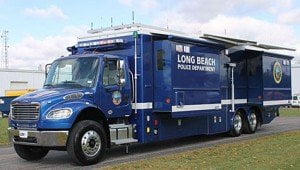Manufacturing Drugs – California 11379.6 HS
One doesn’t need to be a meth lab kingpin like Walter White to get charged with manufacturing drugs under California’s strict laws. Virtually any drug-processing, converting, compounding, or preparation method that utilizes chemical methods is prohibited by Health and Safety code section 11379.6.

An offense under this statute is a felony which carries severe penalties — up to 7 years in state prison and a fine of up to $50,000. Anyone even thinking about manufacturing drugs should carefully consider the potential consequences of a charge under 11379.6.
In California, Health & Safety Code 11379.6 prohibits manufacturing, converting, producing, compounding, preparing, processing, and/or deriving any controlled substance through chemical methods such as extraction or synthesis.
Due the hazardous nature of chemicals used in manufacturing drugs like methamphetamine, police treat the discovery of a drug lab as a major incident and respond in full force.
A controlled substance is any drug whose use, possession, or manufacture is prohibited by the U.S. Controlled Substances Act (21 U.S.C. Chapter 15), as well as under California law. Among the most common controlled substances are:
- Heroin
- Methamphetamine
- Cocaine
- Ecstasy or other “club” drugs such as GHB (gamma-hydroxybutyrate acid)
- Marijuana
- PCP (phencyclidine), also known as angel dust
- LSD, also known as acid
A complete list of controlled substances can be found on the Drug Enforcement Agency’s (DEA) website here.
Manufacturing a controlled substance is a serious crime with substantial sanctions due in part to the dangerous properties – toxicity and/or risk of fire or explosion — of many chemicals involved, and the inherent risks of the manufacturing process.
Elements of the crime of manufacturing drugs
In order for the prosecution to obtain a conviction for violation of 11379.6 HS, the following elements must be proved:
- The defendant manufactured, converted, produced, compounded, prepared, processed, and/or derived a controlled substance through chemical extraction or synthesis.
- The defendant knew that the substance was, in fact, a controlled substance.
It is important to note that even if the manufacturing process is incomplete or unsuccessful, a defendant can be convicted of violating California prohibitions on manufacturing drugs. A violation occurs as soon as the individual knowingly engages in an attempt to manufacture a controlled substance.
Criminal penalties for manufacturing drugs in California
Violation of 11379.6 HS is a felony may result in any or all of the following consequences:
- Three, five, or seven years in state prison.
- A fine not to exceed $50,000.
- Mandatory participation in a drug rehabilitation program.
- Registration as a drug offender.
- Formal probation.
For offenders who are sentenced to probation in lieu of incarceration, after the probationary period is completed, the defendant can request that the court expunge the felony conviction pursuant to 1203.4 PC.
Merely offering to manufacture a controlled substance is also considered a felony and carries a sentence of three, four, or five years.
Additional sentencing enhancements may apply under certain circumstances, such as:
- If children were present, lived in, or were harmed in the place where the manufacturing occurred.
- Manufacturing a large amount of methamphetamine, PCP, or GHB.
- Another person suffered great bodily harm or death.
- If the defendant has prior drug-related convictions.
- If the defendant has previously committed any other related offenses.
Legal defenses
Only a qualified attorney can provide legal advice suitable for the unique circumstances of an accused person. However, there are several common legal defenses against a charge of manufacturing drugs. These include:
- The defendant did not know they were manufacturing an illegal controlled substance.
- The defendant’s acts were preparatory only.
- The defendant was not chemically extracting the substance in question.
- The defendant was not participating in the manufacturing process, but was simply in the wrong place at the wrong time.
- Mistaken identity.
- False accusations.
- The substance was not a controlled substance.
- The police violated the defendant’s Fourth Amendment protection against unreasonable search and seizure.









